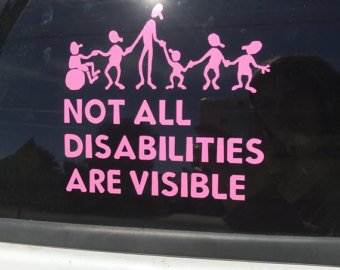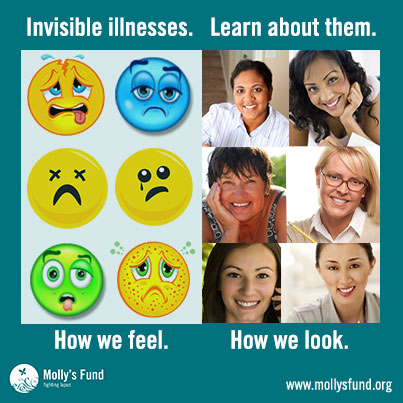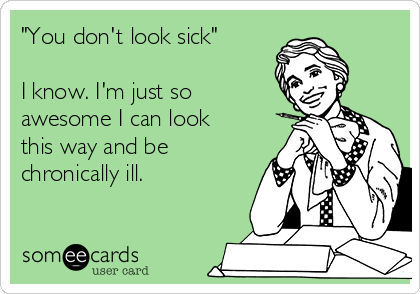 Hubby and I started ballroom dancing last February in preparation for our wedding and enjoyed it so much we just kept going, except for the three weeks I was in the psychiatric clinic. Returning after an absence brings about a perfect paradox in the life of someone who suffers from both depression and social anxiety. The depression side of you hopes that people have at least noticed that you haven’t been around for a few weeks, but the social anxiety side doesn’t want a fuss or any attention drawn to you whatsoever. Turns out, I needn’t have worried…
Hubby and I started ballroom dancing last February in preparation for our wedding and enjoyed it so much we just kept going, except for the three weeks I was in the psychiatric clinic. Returning after an absence brings about a perfect paradox in the life of someone who suffers from both depression and social anxiety. The depression side of you hopes that people have at least noticed that you haven’t been around for a few weeks, but the social anxiety side doesn’t want a fuss or any attention drawn to you whatsoever. Turns out, I needn’t have worried…
We arrived at the same time as another couple who, unbeknown to us, had also missed a few classes. The wife half of the couple had the unmistakable shaven head of someone undergoing chemotherapy. Hubby and I got the “oh shame, hope she’s ok, wonder what kind she has” out the way. I smiled my socially anxious smile and we entered the ballroom; where sympathy descended upon chemo lady.
Now I am taking nothing away from chemo lady. Cancer is a horrible beast. Hubby had leukaemia as a child and so I am all too familiar with his stories of how cruel the disease, as well as its treatment can be. However, I had just been in hospital too. For three weeks. For a life-threatening condition in the sense that I wanted to end my own. I have temporal lobe epilepsy that was giving me two seizures a day at the time. And a dreadful chemical imbalance that I didn’t ask for, any more than she had asked for her tumours.

The difference here is obvious. My diseases are invisible. You can’t see epilepsy. Or anxiety, or depression. You may see its symptoms if you know what to look for, but for the most part, I am fighting an invisible battle, while chemo lady’s is very much out in the open. Now this isn’t about attention, this is about support. This is about knowing that people are in your corner. Our entire dancing class is in chemo lady’s corner. No one knows I need them in my corner too. And I think the thing that possibly makes me the saddest is that even if I told them about my invisible illnesses, about what I struggle with each day, I feel quite certain I wouldn’t get as enthusiastic a response as her bald head did.

There is something terribly wrong with our society. Something that seems to think that mental illness is a choice. A weakness; something we should be able to just snap out of if we were strong enough. You don’t expect people to snap out of cancer, or diabetes, or hypertension; but when it comes to ailments of the brain – well then, just think yourself better. Maybe it’s because doctors can’t yet prove with scientific tests exactly what’s chemically going on in your brain to cause depression, so it must be “all in your head”. Wouldn’t that be a fine thing. If I could “think myself better”. Lord knows I’ve tried.
If mental illnesses presented as physical then even if someone wasn’t brave enough to seek help, or didn’t know where to turn, if they were in so much pain that they would rather be dead than alive, at least someone would freaking notice! Hell, it would probably present as a gaping wound on their forehead! Blood and puss would be gushing out of their ears. It would be nasty. The kind of thing that people would stop to stare at, that people would gather round. The kind of thing that people call an ambulance for. But mental illness is invisible. And so you go unnoticed; unhelped; unrescued.
 In fact, if anything, mental illnesses are worse than invisible. If people do notice a sign or a symptom, they usually feel so awkward about it, they’ll pretend they didn’t see it. Crying in the bathroom stall at work? What a weirdo! Can’t she get her shit together like the rest of us? Personally, I think getting your shit together is overrated. I think it’s a myth. Perpetuated by people so boring they have no shit to get together. When you’re made to feel like it’s an attainable goal, yet it feels like your world is crumbling around you, crying in a bathroom stall should be perfectly acceptable behaviour.
In fact, if anything, mental illnesses are worse than invisible. If people do notice a sign or a symptom, they usually feel so awkward about it, they’ll pretend they didn’t see it. Crying in the bathroom stall at work? What a weirdo! Can’t she get her shit together like the rest of us? Personally, I think getting your shit together is overrated. I think it’s a myth. Perpetuated by people so boring they have no shit to get together. When you’re made to feel like it’s an attainable goal, yet it feels like your world is crumbling around you, crying in a bathroom stall should be perfectly acceptable behaviour.
Everyone deserves their privacy and the invisibility of mental illness could sometimes be seen as a blessing, I guess. But I fear most people are using its anonymity as a shield against shame. The fear of rejection and the stigma of mental health issues within society are enough to make anyone hide their symptoms. And it is this secrecy, this tendency to hide in the invisibility that is perpetuating the problem. Mental illness is not something that can be overcome without a strong support system and you can’t have a strong support system if people don’t know what is going on in your life. It is only by talking about these issues, and other invisible illnesses, that we can begin to break down barriers and heal each other as a true community.

In truth, I am part of the problem. I felt sorry for myself because my dance class wasn’t there for me, but I denied them the chance to be. I could have come back to class and explained my absence. I could even have blamed the epilepsy entirely and left out the mental health aspects – something I am prone to doing – but instead I said nothing, and internally berated a poor woman with cancer. I feared their judgement, but it was me who judged them first.
There is a risk that people won’t understand. That they’ll tell you have so many reasons to be happy and that you just need to think positive thoughts. But there is also a chance that someone will give you a hug and tell you that they understand and your support system will become that much stronger. Isn’t it worth the risk?

